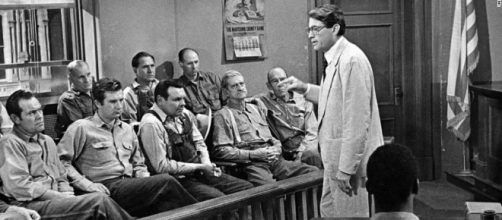"To Kill a Mocking Bird" is a beloved classic. Well, "beloved" may be the wrong word; maybe, "controversial" is a better fit; with all its N words and racism. However blatant, contentions aside, the book is obviously well known by book enthusiasts and begrudged high school (or middle school) students alike. I realize this is not a review of the book, however, how else can you get context on why this topic is so humorous?
Also, as mentioned above, “To Kill a Mocking Bird?” is not only a classic but its generally a great book. The story’s protagonist is actually a six-year-old girl named Jean Louise Finch, or Scout, who is the daughter of Atticus Finch a Lawyer defending a black man who has been accused of horrible crimes, that he did not commit.
The deal gone sour
In 2016 the late Author of “To Kill a Mocking Bird,” Harper Lee, signed a contract with Misters Scott Rudin and Aaron Sorkin, acclaimed producer, and writer, to adapt The Novel to the stage, an endeavor which cost upwards of $100,000. However, the executor of Ms. Lee’s estate, Lawyer Tonja B. Carter, seems to be rather unhappy with the script of the play and has decided to bring both Rudin and Sorkin, to court for the gross negligence of deviance from the original character development.
The character in question is Atticus Finch a white lawyer appointed to defend an accused black man, Tom Robison. Apparently, Atticus is portrayed in the novel as stoic, and wise, and a strong advocate against racism.
But in the adaptation of the novel Atticus starts as a racist and slowly changes his perception as the story evolves.
The rebuttal
Obviously, Mr. Rudin was not too keen to lose well over $100,000 in a venture that they were contractually obliged to, so his company Rudinplay countersued. They demanded 10 million dollars for the lost time and investment. Now I say that Rudinplay was not thrilled to lose such a large amount of money but, they also threatened to completely cancel the project, if the matter wasn’t resolved in a time such that the play could still reasonably be performed on its release date.
They claimed that the play did, in fact, keep to the original spirit of the novel, and in fact, will be using a reenactment as a plausible defense to show the Judge that any deviation from the story is not as far as is being claimed.
Mr. Sorkin also argues what the point is in using him as a playwright if no artistic flare of any kind can be injected, and that he would hardly be needed if the play was only to a mere transcription of the novel.
The unknown resolution
According to Ms. Cater though, the original contract was to not alter the novel in any way, but Rudin contends that the contact also claims that Ms. Lee nor anyone speaking on her behalf has no authority to change individual lines. Either way, this whole debate seems to be about a difference in artistic opinion, and it seems that Rudin has a great defense if he is so sure that his willingness to reenact the play in the courtroom will make a point.


